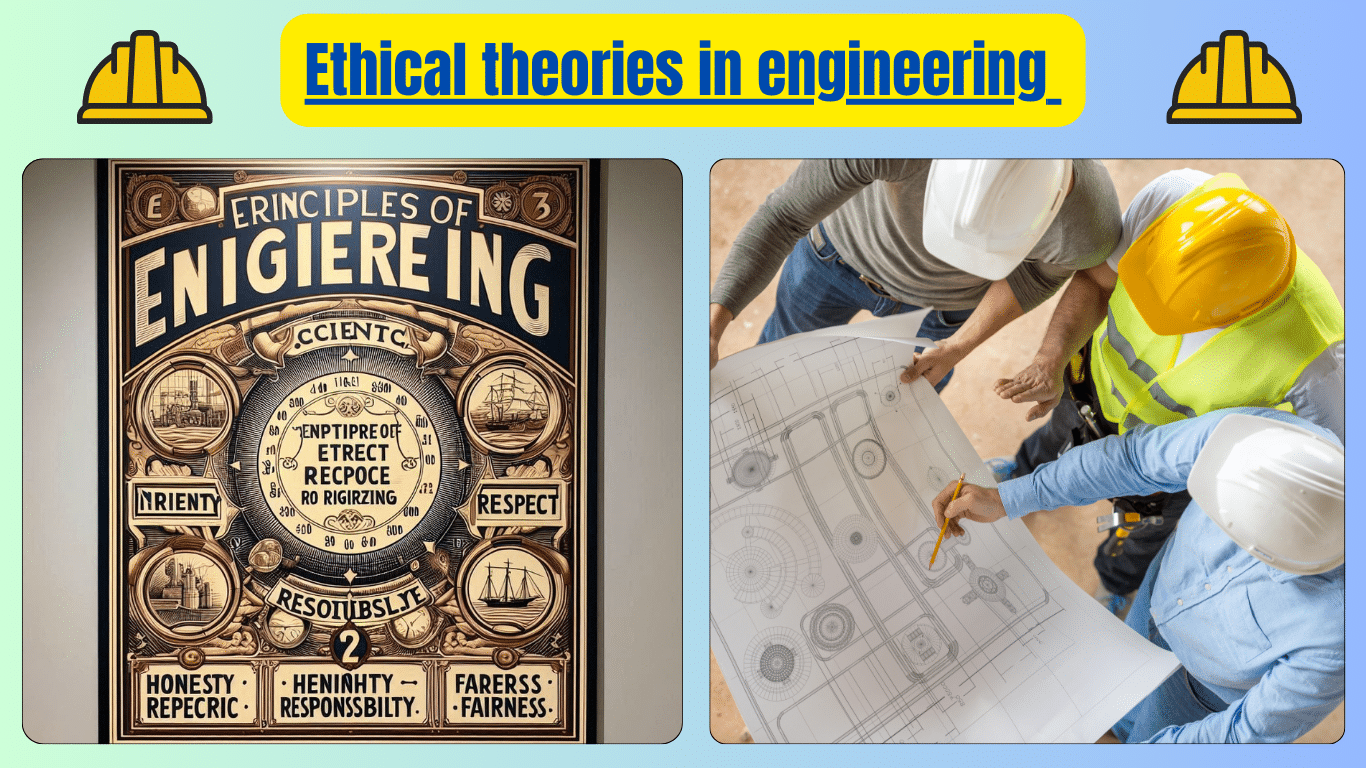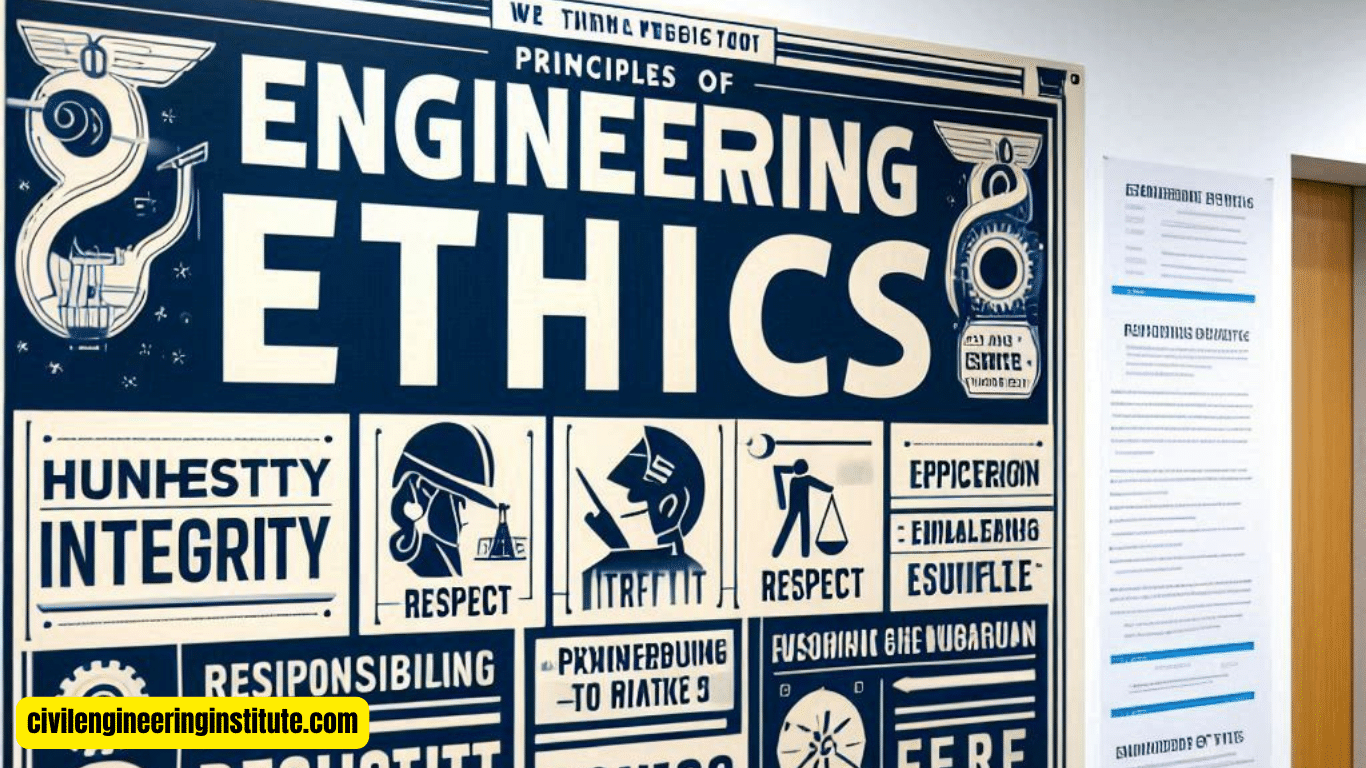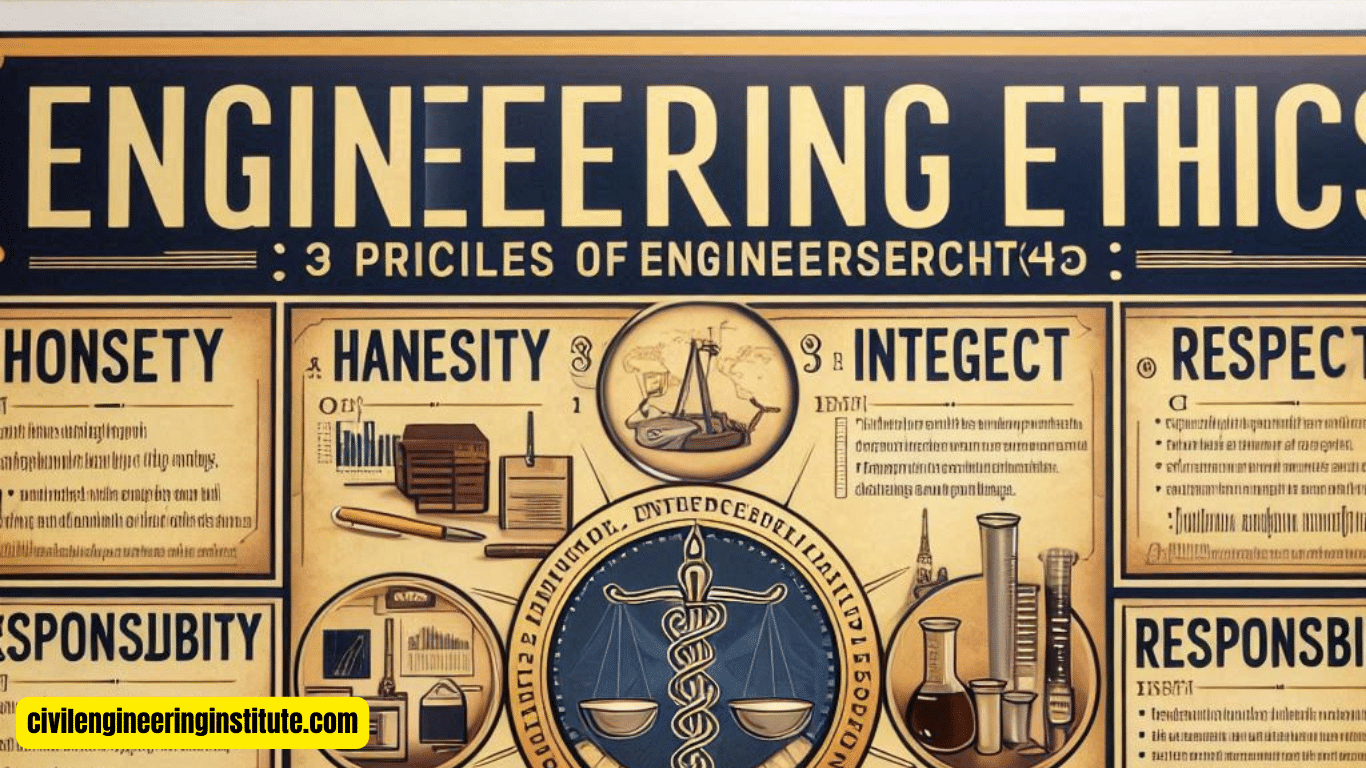Understanding ethical theories in engineering is crucial for ensuring that technological advancements serve humanity responsibly. Ethical theories provide frameworks for engineers to navigate complex moral dilemmas that arise in their work. These theories help engineers consider the potential impacts of their creations on individuals, communities, and the environment. By integrating ethical considerations into the engineering process, professionals can strive to uphold principles of justice, fairness, and respect for human dignity.
Ethical theories such as utilitarianism, deontology, and virtue ethics offer different perspectives on how engineers should make decisions and prioritize values. Utilitarianism focuses on maximizing overall happiness or utility, deontology emphasizes adherence to moral rules or duties, and virtue ethics emphasizes the development of virtuous character traits. By incorporating these ethical theories into engineering practices, professionals can contribute to creating technologies that promote society’s well-being while minimizing harm. Ethical theories in engineering thus play a vital role in guiding responsible innovation and ensuring that technological progress aligns with ethical principles.
Understanding Ethical Theories in Engineering
In the realm of engineering, where innovation and progress drive the development of new technologies, ethical considerations play a crucial role. Engineers are tasked not only with creating functional and efficient solutions to various problems but also with ensuring that these solutions align with ethical principles and values. This article delves into the realm of “Ethical theories in engineering,” exploring the different frameworks that guide engineers in making ethical decisions and navigating complex moral dilemmas.
What are Ethical Theories in Engineering?
Ethical theories in engineering provide frameworks and guidelines for professionals to consider the moral implications of their work. These theories offer different perspectives on how engineers should approach ethical decision-making, taking into account the potential impacts of their creations on individuals, communities, and the environment.
Key Ethical Theories in Engineering
Utilitarianism: Utilitarianism is a prominent ethical theory that suggests that the right course of action is the one that maximizes overall happiness or utility. In the context of engineering, this means that engineers should strive to create technologies that provide the greatest benefit to the greatest number of people while minimizing harm.
Deontology: Deontology is another ethical theory that emphasizes the importance of adhering to moral rules or duties. From an engineering perspective, this means that professionals should follow ethical principles and standards, even if doing so may not always lead to the best overall outcome.
Virtue Ethics: Virtue ethics focuses on the development of virtuous character traits and emphasizes the importance of moral integrity and excellence in decision-making. In engineering, this means that professionals should cultivate virtues such as honesty, integrity, and compassion, which can guide them in making ethical choices.
Applying Ethical Theories in Engineering Practice
In practice, engineers often encounter ethical dilemmas that require careful consideration and deliberation. By applying ethical theories, professionals can analyze these dilemmas from different perspectives and make informed decisions that prioritize ethical values.
For example, imagine a situation where an engineer is developing a new technology that has the potential to greatly benefit society but also carries some risks of harm to the environment. By applying utilitarianism, the engineer would weigh the potential benefits against the potential harms and strive to maximize overall utility. On the other hand, a deontological approach might lead the engineer to prioritize adherence to environmental regulations and ethical standards, even if it means sacrificing some potential benefits.
The Importance of Ethical Theories in Engineering
Ethical theories in engineering are essential for guiding responsible innovation and ensuring that technological advancements serve the greater good. By considering the moral implications of their work and incorporating ethical principles into their decision-making processes, engineers can contribute to the creation of technologies that promote human well-being and minimize harm to society and the environment.
Important key points: Ethical theories in engineering
Theory of Ethics in Engineering
The theory of ethics in engineering guides professionals to make morally responsible decisions in their work. It provides a framework for engineers to consider the ethical implications of their actions and creations. This theory emphasizes the importance of upholding ethical principles and values while designing, developing, and implementing technological solutions. By integrating ethics into engineering practice, professionals can ensure that their work benefits society while minimizing harm to individuals, communities, and the environment.
The 7 Principles of Engineering Ethics
The 7 principles of engineering ethics are guidelines that help engineers navigate ethical dilemmas and uphold high standards of conduct. These principles include:
- Hold paramount the safety, health, and welfare of the public.
- Perform services only in areas of their competence.
- Issue public statements only objectively and truthfully.
- Act for each employer or client as faithful agents or trustees.
- Avoid deceptive acts.
- Conduct themselves honorably, responsibly, ethically, and lawfully to enhance the honor, reputation, and usefulness of the profession.
- Continue their professional development throughout their careers and provide opportunities for the professional development of those under their supervision.
These principles serve as a moral compass for engineers, guiding them in their professional conduct and decision-making processes.
Creators of the 7 Principles of Ethics
The 7 principles of engineering ethics were developed by professional engineering societies, such as the National Society of Professional Engineers (NSPE) in the United States. They were established to promote integrity, honesty, and accountability within the engineering profession.
Three Main Branches of Ethical Theory
Ethical theory can be broadly categorized into three main branches:
- Metaethics: Metaethics explores the nature and origins of ethical principles and concepts. It delves into questions about the meaning of terms like “good,” “bad,” “right,” and “wrong.”
- Normative Ethics: Normative ethics focuses on establishing moral norms and principles that guide ethical behavior. It seeks to determine the criteria for evaluating the morality of actions and decisions.
- Applied Ethics: Applied ethics involves the application of ethical principles to specific fields or contexts, such as engineering, medicine, business, and environmental ethics. It addresses real-world moral dilemmas and ethical issues that arise in professional practice.
Three Areas of Ethical Theories
Ethical theories encompass a wide range of perspectives and approaches, but they can generally be categorized into three main areas:
- Consequentialism: Consequentialist theories, such as utilitarianism, evaluate the morality of actions based on their outcomes or consequences. These theories prioritize achieving the greatest good for the greatest number of people.
- Deontology: Deontological theories, like Kantian ethics, emphasize the importance of moral rules, duties, and principles in guiding ethical behavior. According to deontologists, certain actions are inherently right or wrong, regardless of their consequences.
- Virtue Ethics: Virtue ethics focuses on the character traits and virtues that contribute to ethical behavior. It emphasizes the development of moral virtues, such as honesty, integrity, compassion, and courage, as essential aspects of ethical decision-making.
Examples of Engineering Ethics
Examples of engineering ethics include the following:
- Ensuring the safety and reliability of engineering designs and products.
- Protecting the environment and minimizing the impact of engineering activities on ecosystems.
- Respecting the rights and dignity of individuals affected by engineering projects, such as communities impacted by infrastructure development.
- Maintaining honesty and integrity in professional relationships and communications.
- Upholding confidentiality and privacy when dealing with sensitive information.
Role of Ethics in Engineering Decision-Making
Ethics plays a crucial role in engineering decision-making by guiding professionals to consider the moral implications of their choices. Engineers must weigh the potential benefits and risks of their actions, taking into account the welfare of society, the environment, and future generations. Ethical considerations help engineers navigate complex dilemmas and make choices that align with principles of justice, fairness, and respect for human dignity.
Importance of High Ethical Standards for Engineers
Engineers need to uphold high ethical standards to maintain public trust and confidence in the profession. Engineering projects and technologies have far-reaching impacts on society, and unethical behavior can lead to serious consequences, including harm to individuals, damage to the environment, and loss of public trust. By adhering to ethical principles and values, engineers can contribute to the betterment of society and ensure that their work serves the common good.
conclusion
ethical theories in engineering provide valuable frameworks for professionals to navigate the complex moral landscape of technological innovation. By understanding and applying these theories, engineers can uphold ethical principles and values in their work, ultimately contributing to a more just and sustainable future for all.
FAQs
What are ethical theories in engineering?
Ethical theories in engineering are frameworks that help professionals make morally responsible decisions in their work by considering the ethical implications of their actions and creations.
Why are ethical theories important in engineering?
Ethical theories guide engineers in navigating complex moral dilemmas and ensuring that their work benefits society while minimizing harm to individuals, communities, and the environment.
What are some examples of ethical theories in engineering?
Examples of ethical theories include utilitarianism, which focuses on maximizing overall happiness; deontology, which emphasizes moral rules and duties; and virtue ethics, which stresses the importance of virtuous character traits.
Who created the 7 principles of engineering ethics?
The 7 principles of engineering ethics were developed by professional engineering societies, such as the National Society of Professional Engineers (NSPE), to promote integrity, honesty, and accountability within the profession.
How do engineers apply ethical theories in practice?
Engineers apply ethical theories by analyzing ethical dilemmas from different perspectives and making informed decisions that prioritize ethical values, such as safety, honesty, and respect for human dignity.
What role does ethics play in engineering decision-making?
Ethics plays a crucial role in engineering decision-making by guiding professionals to consider the moral implications of their choices and ensuring that their actions align with principles of justice, fairness, and responsibility.
Why is it important for engineers to have high ethical standards?
Engineers need to uphold high ethical standards to maintain public trust and confidence in the profession and to ensure that their work serves the common good without causing harm.
How do ethical theories help engineers address ethical dilemmas?
Ethical theories provide engineers with guidelines and principles for evaluating the morality of their actions and making decisions that prioritize ethical values and principles.
What are the consequences of unethical behavior in engineering?
Unethical behavior in engineering can lead to serious consequences, including harm to individuals, damage to the environment, legal and professional repercussions, and loss of public trust.
How can engineers continue to develop their ethical reasoning skills?
Engineers can continue to develop their ethical reasoning skills by staying informed about ethical issues in their field, participating in ethics training and professional development opportunities, and seeking guidance from mentors and colleagues.






